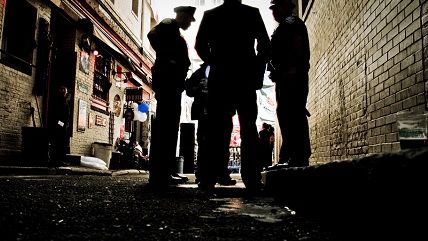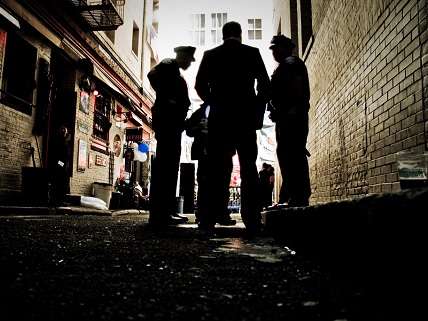Supreme Court Rules Unanimously to Protect Qualified Immunity for Police
Rules that qualified immunity applies unless the situation matches one where qualified didn't apply in the past


The Supreme Court reversed a decision of the 10th Circuit Court of Appeals, handing down an 8-0 decision in the case of White v. Paulie that will serve to strengthen qualified immunity for police officers.
The case revolved around the fatal police shooting of Samuel Paulie in New Mexico. Police officers arrived at the Paulie brothers' home after two women called police to report one of the Paulies allegedly driving drunk. According to the facts presented in the ruling, police determined after talking to the women that they did not have probable cause to arrest Paulie but wanted to go to his house anyway to "get his side of the story," to see if he was drunk, and to see if there was anything else going on. The officers went separately. The first two officers to arrive didn't identify themselves as police, instead telling the Paulies they were surrounded and to come out or they would come in, causing the Paulies to believe they were being targeted for a home invasion and to arm themselves.
That's when the third officer, Ray White, the plaintiff of the case that made it to the Supreme Court, arrived, just in time to hear the Paulies yell "we have guns." He took cover behind a wall. Sam Paulie then exited his house with a shotgun, firing one shot that didn't hit anyone. One of the officers shot at Paulie but missed. Then White left his cover and fired at Paulie, killing him.
The Supreme Court ruled that White deserved qualified immunity (a concept that, in essence, protects government employees from liability and civil damages so long as "their conduct does not violate clearly established statutory or constitutional rights of which a reasonable person would have known," as the Supreme Court decided in the 1982 case Harlow v. Fitzgerald.
"In the last five years, this Court has issued a number of opinions reversing federal courts in qualified immunity cases," the court noted in its White v. Paulie decision, appearing to signal that there ought to be less of these making it all the way to the Supreme Court. "The Court has found this necessary both because qualified immunity is important to 'society as a whole,' and because as 'an immunity from suit', qualified immunity 'is effectively lost if a case is erroneously permitted to go to trial.'"
The crux of the court's decision is that, as "this Court explained decades ago, the clearly established law must be 'particularized' to the facts of the case." The court admonished the appeals court for misunderstanding "the 'clearly established analysis,'" writing that the 10th circuit had "failed to identify a case where an officer acting under similar circumstances as Officer White was held to have violated the Fourth Amendment." Given that every police shooting is different in its own way, this is a troubling standard from the perspective of reducing police violence and increasing accountability for it.
The appeals court, the Supreme Court continued, "did not conclude that White's conduct—such as his failure to shout a warning—constituted a run-of-the-mill Fourth Amendment violation." The Supreme Court did not explain what they believed a "run-of-the-mill" Fourth Amendment looks like—the phrase is not a legal term of art.
The appeals court "recognized that 'this case presents a unique set of facts and circumstances' in light of White's late arrival on the scene. This alone should have been an important indication to the majority that White's conduct did not violate a 'clearly established' right."
Justice Ruth Bader Ginsberg offered a concurring opinion that North Carolina criminal defense attorney and prolific legal tweeter Greg Doucette called an "after-the-fact 'this isn't as bad as it looks' concurrence," one "that would be totally unnecessary if it wasn't actually just as bad as it looks."
"The Supreme Court's (unanimous) ruling means that absolutely no §1983 case will survive summary judgment on qualified immunity," Doucette tweeted, "Unless there is preexisting precedent with the exact same facts."
It's important to stress that this decision was unanimous. The court may be divided evenly between liberals and conservatives, but when it comes to advocates of government power, they have an overwhelming majority. Even Justice Sonia Sotomayor, whose dissent in Utah v. Strieff, a case about the Fourth Amendment and police searches, Slate called an "atomic bomb of a dissent slamming racial profiling and mass imprisonment," didn't dissent here.
The Supreme Court's latest ruling also highlights how crucial police reforms at the local level are to the cause of lowering police violence. Cops with the propensity to use excessive force or otherwise habitually violate Constitutional rights have to be removed from the force before they have a chance to kill anyone—that requires higher hiring standards, more accountability and discipline, and eliminating the largely union contract-driven privileges and protections that enable all of it.


Show Comments (48)